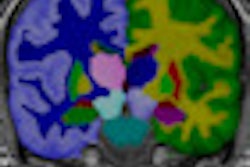Dutch researchers says invasive and expensive techniques, such as lumbar puncture and PET scans, are not useful to establish the diagnosis of Alzheimer's disease in most elderly patients, as MRI is preferable, according to a study published in the Journal of Alzheimer's Disease.
The study from the University of Amsterdam analyzed data from the Alzheimer's Disease Neuroimaging Initiative (ADNI) and concluded that MRI scans and neuropsychological tests provide more relevant information than cerebrospinal fluid (CSF) biomarkers and FDG-PET imaging.
The Dutch researchers divided ADNI information into one group of subjects younger than 75 years of age and a second group older than 75 years. They showed that the CSF biomarkers and FDG- PET were informative in the younger patients, but not in the older group.
MRI scans and cognitive tests were helpful in distinguishing patients who were already demented from those who were not and in predicting which older individuals with mild cognitive impairment would develop dementia within a few years.
Predictions based on CSF biomarkers may turn out to be right in the longer term, say five or 10 years, in patients who live that long and become demented.
Study co-author Willem A. van Gool, professor of neurology at the university, said CSF's long-term prediction is not what doctors, patients, and families need, as a more timely prognosis is always preferable.



















